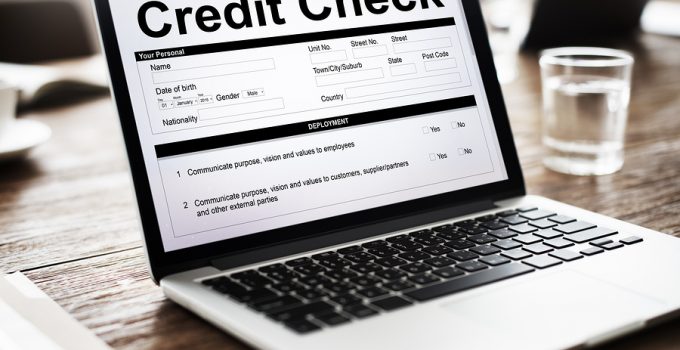Credit checks are a business-to-business process used to ascertain the financial security of a company in order to make an informed decision on the level of financial risk. Performing checks is becoming more common particularly in today’s tough economic climate where, on average 1 in 3 small businesses (a business with less than 50 employees and an annual turnover lower than £5.6 million), ceases trading within their first year. The pandemic has also caused an unprecedented stalling of global economies, the repercussions of which will be felt by businesses for years.
Before you commit to working with a new supplier it is vital to check their credit worthiness. You don’t want to place a substantial order with someone, only to find that they go out of business before the order can be fulfilled. The pandemic will have left many small and medium sized companies in a perilous financial position so it is vital to do your homework before committing.
Unpaid invoices and overdue payments are on the increase with companies waiting to be paid on average up to 72 days according to recent research. Delays in payments cause problems that can affect your company’s performance and typically generate several weeks of administrative work chasing outstanding payments. This in turn affects your own cash flow and your ability to plan ahead.
Most reputable businesses are more than happy to provide credit reports to prove their solvency. Alan Jenkins of Bournemouth based exhibition stand designer Black Robin Exhibits confirmed this, “We always supply a credit report and references to any customer, we have nothing to hide and it puts their mind at rest. The last year has been tough, especially in our industry as all events were cancelled. But we weathered the storm and are happy to prove it, then you know you can trust that we will fulfil any order”.
Carry out supplier due diligence

Source: waystocap.com
Due diligence is a comprehensive appraisal of a business undertaken by a prospective investor or customer, especially to establish its assets and liabilities and evaluate its commercial potential. It is an important part of finding suppliers. Before entering into a contract, it’s essential to make enquiries and carry out research on prospective suppliers to ensure that they are legitimate and trustworthy.
Generally, the legal terms in a contract or other purchase agreements should express specifics of the transaction. These may include the length of the investigation period, items to be examined, and the expiration date.
If you want to do a thorough due diligence you should check the following:
- Revenue, profit, and growth trends
- Stock history and options
- Short and long-term debts
- Valuation multiples and ratios in comparison to competitors and industry benchmarks
- Balance sheets, income statements, and the statement of cash flows
How to credit check a new supplier

Source: creditsafe.com
As a starting point, you should credit check potential suppliers to ensure they have the cashflow to deliver what you want, when you need it. This is especially important if you’re entering into a long-term contract. You need to be sure that it isn’t at risk of them going out of business. The supplier will probably also run checks on you to ensure you have the means to pay for its goods or services.
Obtaining a business report from a reputable credit bureau such as Dun & Bradstreet (D&B), Creditsafe, Coface Central Europe, CRIF Bürgel, Creditreform is typically the fastest way to get a reliable picture of the financial status of any business partner.
These reports allow you to gain an insight into your business partner’s corporate identity, legal status and assess the competency of the individuals responsible for the relationship, as well as obtain up to date invoice and contact details.
Most business reports include a credit score that summarises an organisation’s viability and warns about business risks to aid fully informed decision making. For this credit bureaus use different weighting systems and statistical methods to consider specific characteristics that impact on the business performance, such as company size, demographics, ownerships, public information records, financial data, industry analysis and county court judgements. They then deliver a global risk score that typically correlates low levels of risk of becoming insolvent with highly creditworthiness.
Prevention is better than a cure so knowing these details about a supplier will give you confidence to enter into a relationship. It will also tell you if there is any history of bankruptcy which should be a red flag if so. If there have been any legal issues in the past this could affect a supplier’s ability to fulfil future contracts.
As part of carrying out due diligence, you may also want to:
- check business registrations and public documents
- ask to see their credit report
- validate standards or quality accreditations
- ask for samples, if applicable, to assess the quality of their products
Any reputable business should be happy to supply you with these things. The process can be as extensive or as brief as you want it to be. How much detail you go into should depend on how critical the supplier’s product or service is to your business. The larger the order, the more detail you should go into.
Check customer reviews and references

Source: strikingly.com
Obtaining references can help to put your mind at rest when working with a new supplier, and also give you a better idea of how to work best with them. The supplier should be happy to put you in touch with some of its existing or previous clients. If not, ask yourself what they might be trying to hide. It is unlikely that the supplier will put you in touch with a dissatisfied customer, so make sure that you do some independent searching.
Finally, it is always worth doing a few quick Google searches. Larger companies, in particular, may have had news articles written around any bad practices. You may uncover some information on review websites, or across some supplier forums. Facebook and Google are also good places to check reviews – it may be subjective, but it should give you an indication of how a supplier operates.







